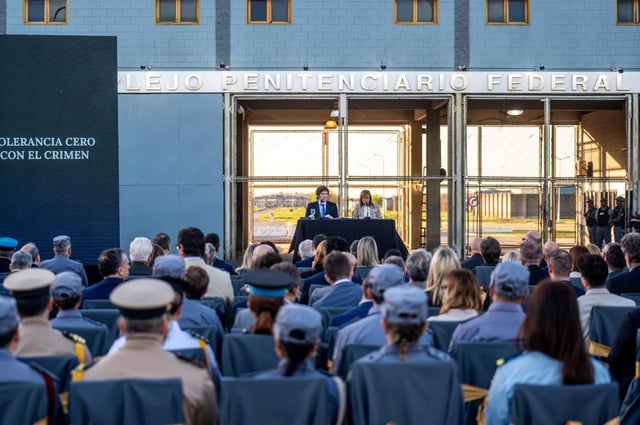Overview
- Presenting the draft at Ezeiza prison, the president detailed a comprehensive rewrite that consolidates decades of amendments into a single code, with the bill set to be signed and sent to Congress though no submission date was given.
- Increases in penalties span common and serious crimes, including simple homicide raised to 10–30 years and expanded aggravated circumstances, with officials saying most offenses would carry effective prison terms and tighter limits on conditional release.
- The project declares certain offenses imprescriptible, covering aggravated homicides, sexual crimes, human trafficking, extortionate kidnapping, terrorism, narcotics offenses and attacks on the constitutional order.
- The plan lowers the age of criminal responsibility, with top officials asserting 13 years even as prior congressional discussions pointed to a potential 14‑year threshold.
- New offenses target digital‑era and contemporary crimes—such as stealthing, pornovenganza, grooming and AI‑related abuse, virtual kidnappings and “motochorro” robberies—while adding non‑excarcelable penalties for illegal weapon carrying, immediate restitution in usurpation cases and nationwide adoption of the accusatory system.



